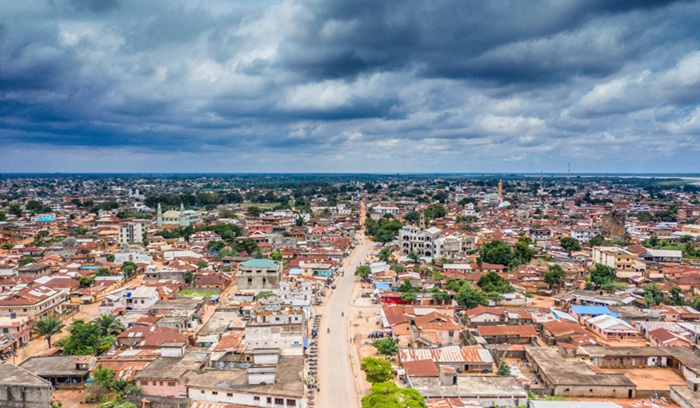In a landmark move, Benin has adopted a new citizenship law granting nationality to descendants of Africans who were forcibly deported during the transatlantic slave trade. Passed by parliament in September 2024 and entering force in July 2025, the law represents one of the boldest legislative steps by an African country to reconcile with its historical role in slavery while embracing the global African diaspora (AP News; Wikipedia: Beninese nationality law).
Who Can Apply and How the Law Works
The law permits individuals over the age of 18 who can trace their ancestry to enslaved Africans from Benin to apply for citizenship. Applicants must not already hold citizenship from another African country. Proof of ancestry can be demonstrated through DNA testing, genealogical documents, or sworn testimony verified by Beninese authorities.
Applications are facilitated through a new platform, My Afro Origins, which serves as the official channel for diaspora members to register. Successful applicants initially receive a provisional certificate of nationality valid for three years, during which they must make at least one visit to Benin to finalize their citizenship status (AP News).
Historical Context and Reconciliation Efforts
Benin, formerly the Kingdom of Dahomey, played a central role in the Atlantic slave trade, with Ouidah serving as a major port where enslaved Africans were shipped to the Americas. In the 1990s, Benin began publicly acknowledging this history, including hosting UNESCO dialogues on slavery. In 1999, President Mathieu Kérékou issued a formal apology in Baltimore to African Americans for Benin’s participation in the trade (Wikipedia: African apologies for the Atlantic slave trade).
The citizenship law builds on these earlier gestures, transforming symbolic reconciliation into legal recognition. Justice Minister Yvon Détchénou described the law as both “an act of justice” and “an act of belonging,” underscoring its significance for healing historical wounds (AP News).
Part of a Continental Trend
Benin’s approach mirrors broader efforts across Africa to reconnect with the diaspora. Ghana’s “Year of Return” in 2019 invited descendants of enslaved Africans to visit the country, offering special residency permits and symbolic citizenship pathways. Similar policies exist in Sierra Leone and Liberia, though Benin’s law is one of the most explicit and formalized in extending full citizenship rights to descendants of enslaved people (Wikipedia: Blaxit).
By enacting this law, Benin positions itself as a leader in diaspora engagement, signaling that descendants of the transatlantic slave trade are not outsiders but an integral part of Africa’s extended family.
Beyond Symbolism: Tourism and Cultural Identity
The law also ties into Benin’s strategy of promoting “memorial tourism.” Sites such as the Slave Route and the Door of No Return in Ouidah have become powerful spaces for remembrance and reconnection. Officials hope that offering citizenship will deepen diaspora ties, attract investment, and promote cultural exchange.
Sindé Cheketé, head of the national tourism agency, noted that the program will give descendants of enslaved people a tangible reason to “come home” and contribute to Benin’s development (AP News).
Legal and Practical Implications
Benin allows dual nationality, meaning applicants will not be forced to renounce their existing citizenship. This provision lowers barriers for diaspora members in the Americas, Europe, and the Caribbean. The government views this as a step toward creating lasting connections between Benin and its diaspora, rather than a symbolic one-time gesture (Wikipedia: Beninese nationality law).
By enacting this law, Benin acknowledges its painful role in the slave trade while extending a genuine invitation to descendants of enslaved Africans to reconnect legally, culturally, and spiritually with their ancestral homeland. The policy transforms remembrance into rights, bridging past injustice with present opportunities.
More Good News
-
Congo Basin nations launch historic community payments for forest care initiative
A groundbreaking initiative has launched across the Congo Basin to pay local communities directly for protecting their forests. Supported by the Central African Forest Initiative (CAFI), the program uses mobile technology to transfer funds to farmers who engage in sustainable practices like agroforestry and reforestation. With over $100 million in new funding, this effort aims to scale up conservation across the Democratic Republic of Congo, Gabon, and the Republic of Congo. This model empowers local people as the primary guardians of the world’s second-largest rainforest.
-

Uruguay achieves near 100% renewable energy grid
Uruguay has achieved a major energy milestone, generating over 97% of its electricity from renewable sources. This success is built on a strategic mix of wind, solar, hydropower, and biomass, ensuring a reliable and clean grid without reliance on fossil fuel imports. This pragmatic economic policy has stabilized energy costs and created thousands of jobs. Uruguay’s rapid transition provides a powerful, scalable blueprint for other nations seeking energy independence and environmental sustainability.
-

Germany to classify date rape drugs as weapons to ensure justice for survivors
Germany has taken a landmark step to protect survivors of sexual violence by classifying date rape drugs as weapons under criminal law. This decisive move, championed by Interior Minister Alexander Dobrindt, allows for significantly stricter prosecutions and longer sentences for offenders. By legally recognizing the severity of drug-facilitated assault, the government is closing loopholes and prioritizing victim safety. This reform sets a powerful new standard for justice and public safety across Europe.
-

Dominican Republic celebrates historic court win against old anti-gay law
In a historic victory for human rights, the Constitutional Court of the Dominican Republic has struck down a ban on same-sex conduct within the national police and armed forces. This landmark ruling declares that Article 210 of the Police Code and Article 260 of the Armed Forces Code are unconstitutional. By eliminating the threat of prison sentences for LGBTQ+ officers, the court has affirmed the right to equality, privacy, and dignity. This decision aligns the nation with international standards and sets a powerful precedent for future anti-discrimination efforts.
-

Colombia bans all new oil and mining projects in its Amazon
In a decisive victory for the environment, the Colombian government has declared a halt to all future industrial extraction within its rainforest territories. This policy protects 42% of the nation’s territory, immediately stopping hundreds of pending permits. The ban prioritizes biodiversity, water systems, and Indigenous land rights over short-term profit. By shifting focus to a sustainable bioeconomy, Colombia is setting a powerful example of environmental sovereignty for the entire Amazon basin.
